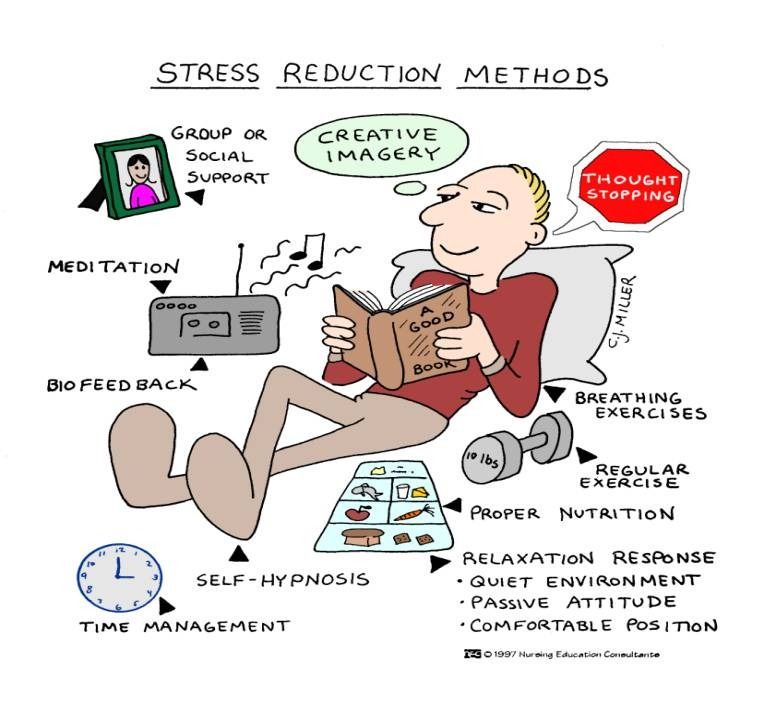How to deal with public humiliation
10 Steps for Getting Over Humiliation
I doubt that anyone gets through life without ever feeling utterly humiliated. But what should you do when it happens to you? Humiliation can feel so intensely painful and debilitating that advice for dealing with it may seem futile. Maybe in those early moments, it is hard to do anything but wallow in your own distress, but there are some useful tips out there.
One of the most celebrated scholars in contemporary psychology, Robert J. Sternberg, recently experienced one of those humiliations (though he called it "a career crisis"). He wrote about it, and two previous crises, in the Chronicle of Higher Education, and shared the lessons he thinks we all can learn from some of our most painful life experiences. Here I’ll provide a brief version of Sternberg’s 10 lessons, then add some thoughts of my own.
Sternberg’s 10 Tips for Dealing with Humiliation
One of the fascinating aspects of reading about Sternberg’s crises is remembering that he is a professional who, in many ways, has been amazingly successful. Want to think about intelligence in a much broader way than many scholars had in the past? Sternberg’s your guy. What about love? Want to get beyond the gauzy sentimentality and really think about the different kinds of meaning love can have? That’s Sternberg, again. As is true for just about anyone who has gotten so much attention, he also has his critics. But he has also collected just about every major award the profession of psychology has to offer. He has a Stanford Ph.D., he has taught at Yale, and has served at various universities as dean, provost, president.
Most recently, he was hired to be president of the University of Wyoming. It seemed to be a very big deal for that university to land him. They spent tons of money recruiting him, and more to hire him. But it all came tumbling down in a matter of months, as Sternberg resigned amid a flurry of recriminations and bad feelings.
Sternberg’s first tip is to realize that all sorts of people have had experiences as bad as yours, or worse—maybe some of the people you least expect. . .
. .
- Realize that you are not alone. “If you can find people who have had a similar crisis to your own, talk to them.”
- You have to be resilient, not just smart. Sometimes what separates successful people from those who fail is not talent, but the willingness to keep coming back after terrible setbacks, rather than giving up.
- Most of the time, it’s nothing personal. Success is often about a fit between you and a particular place or situation. If you don’t fit, don’t take it personally—just move on to a better fit.
- Learn from the experience.
- Seek out a support network to help you move on.
- Use any downtime you have to do something you really enjoy.
- Think twice before striking back. “Your cause may be just. But the more relevant question is whether plotting your revenge is the best use of your time, energy, reputation, and likely, money.
 Wouldn’t it be wiser to focus on plotting a new future for yourself?”
Wouldn’t it be wiser to focus on plotting a new future for yourself?” - Don’t hide. “You need to affirm for people, and perhaps for yourself, who you are and what you stand for. And you need to show people that the crisis has not destroyed you.”
- View the crisis as an opportunity. For example, use it as an opportunity to pursue something you love.
- Move on. Don’t wallow in your humiliation. Plan for the future.
There’s a lot of wisdom in Sternberg’s words. Still, I think the road to recovery is probably different for different people. Some, for example, may really need time just to hide out and be by themselves, and not even talk to potential sources of support, before regrouping and moving on.
More important, sometimes the humiliating experience you have endured is not just about you—it is something many other people have experienced, too, maybe at the hands of the same people. But there can be a sort of “pluralistic ignorance,” whereby no one realizes that their own personal experiences are not just theirs alone, because no one is talking or sharing. Or maybe the person doing the humiliating is a powerful and threatening person, and no one dares to stand up to that person…until someone finally does, and then all sorts of people who had felt humiliated and intimidated come out from hiding and say, Yes, this has happened to me, too. (The Chris Christie situation may be a case in point.)
Or maybe the person doing the humiliating is a powerful and threatening person, and no one dares to stand up to that person…until someone finally does, and then all sorts of people who had felt humiliated and intimidated come out from hiding and say, Yes, this has happened to me, too. (The Chris Christie situation may be a case in point.)
Sometimes humiliation is a by-product of institutional prejudices, as when racism, sexism, ageism, or singlism is built right into the structure of our laws, or is part of the unquestioned traditions of a workplace. (I don’t follow football much, but the Richie Incognito and Jonathan Martin story seems to fit this narrative.)
I think a case can be made that those who feel threatened, insulted, and humiliated should stand up to the people who are treating them unfairly, not just for their own sake, but for the sake of all the others who have been similarly mistreated. Sternberg is right, though—that can be risky and costly, and not just financially. Victims can easily become re-victimized in the nastiest ways—even when they are totally right about their complaints.
Victims can easily become re-victimized in the nastiest ways—even when they are totally right about their complaints.
How to deal with feeling humiliated and embarrassed
Posted on by Our Team
Feeling humiliated and embarrassed is not comfortable but you can learn to overcome such feelings.Our great fear is public humiliation. Most people in the public eye stuff up occasionally. The Duke of Edinburgh, for example, is renowned for it. While we may not be in the public eye like the Duke we can still identify with his situation. At some time, we too have been guilty of hurting others with our indiscreet words or simply looking foolish.
Consider the following situations, some of which may be uncomfortably familiar.
- Susie is having lunch with her new workmates. After a glass of wine, everyone is getting along very well. Susie feels sufficiently comfortable to share her views on born-again Christians, who she dislikes intensely.
 Only later does she find out that her new boss, who’d been sitting opposite her, is a born-again Christian.
Only later does she find out that her new boss, who’d been sitting opposite her, is a born-again Christian. - John is a sales representative who is keen to make a good impression on his new client, Michael Cruise. Greeting the client, John shakes his hand and says, “Mr Tom Cruise, nice to meet you.” As soon as the words are out of his mouth, he realizes what he has said and turns bright red.
- Marie, a thin woman, is struck by how attractive her large sister-in-law looks all dressed up for dinner. Thinking she is giving a genuine compliment, Marie says, “You look fabulous in that dress, it takes 10 kilos off you.” Upset, the sister-in-law retorts that she knows she should lose weight.
- On several occasions, Peter has been out with his best friend, Bill, and the woman with whom Bill is having an affair. Peter is also friendly with Bill’s wife. When talking to Bill and the wife, Peter recounts an episode from an evening they spent together. Only from the wife’s repeated questioning, does Peter realise that the evening was actually spent with the lover, not the wife.
 By then, Bill’s wife has caught on and Bill and Peter’s desperate attempts to cover up only make the situation worse.
By then, Bill’s wife has caught on and Bill and Peter’s desperate attempts to cover up only make the situation worse.
Many of us, once we have realised what we have done, become obsessed with our slip-ups. We play the scenario over and over in our head; we wish it had never happened; we berate ourselves for being so stupid; we run different possibilities through our mind wondering how we might fix it; and we become agitated and lose sleep. We want to break out of this cycle but often don’t know how.
Eventually, the demands of day to day living take over and the experience fades. Recalled sometime later, however, all the awful feelings of embarrassment surface again.
The secret of resolving the shame of indiscretion is dealing with your feelings rather than thinking about how to fix it. Obsession with remembering and replaying every detail indicates that we are trying to solve a feeling by thinking. Thoughts are different to feelings. We use different parts of our body and psyche when we are feeling in comparison to when we are thinking.
Thinking is our logical part and takes place in our mind. It involves images and internal dialogue. Feeling is physical. It occurs in our body. Emotions, such as embarrassment, are felt rather than thought (although a thought can trigger them).
To stop the cycle of obsessive thinking we need to feel the embarrassment, no matter how uncomfortable. By relaxing and breathing deeply, we allow the feelings to take over our body. Once we have dealt with the feelings, we reach a place of acceptance. We know the situation cannot be undone and we learn to live with it. Apologies and other appropriate action are quickly taken.
You know you have fully resolved your embarrassing indiscretions when you find yourself retelling them, with relish, to an amused audience at a dinner party.
Kathy
Kathy works in a public service department as a change manager. Before she goes on leave she finishes an important report that is sent to her boss. Reading the report, the boss notices a major inaccuracy, which he corrects. The report is then copied, bound and distributed.
The report is then copied, bound and distributed.
When Kathy returns from leave, boss calls her to chastise her for the inaccuracy. Kathy is sure he is mistaken, as she cannot remember making the error. She is short on the phone with him and hangs up annoyed. She personally checks the report, and seeing no error sends the report around to her boss, circling the area in question in thick red pen to prove her innocence.
Little does Kathy know she is looking at the version her boss has already corrected. A couple of days later when Kathy is still mulling over the incident, she rereads the draft she originally sent to the boss. She is shocked to find the boss was correct after all. Kathy feels distressed and embarrassed. Why didn’t she check the draft immediately? Why was she so defensive? How could she have been so rude? What should she do? Has her career been damaged?
She gets no sleep and calls in sick the next day. Her distress is so great and her head so clouded that she cannot do anything but feel the embarrassment. After weeping, she finds she feels better. She thinks through her alternatives. She decides to go into work where she phones her boss. She unconditionally apologises, resisting the temptation to make excuses. The boss knows Kathy is a talented, reliable worker and accepts her apology.
After weeping, she finds she feels better. She thinks through her alternatives. She decides to go into work where she phones her boss. She unconditionally apologises, resisting the temptation to make excuses. The boss knows Kathy is a talented, reliable worker and accepts her apology.
How to avoid embarrassment
- Think before you speak.
- Keep your emotions under control.
- Never react defensively.
- Take time to respond thoughtfully to criticism.
- Don’t assume others share your views.
- Keep confidences.
- Don’t gossip.
After you’ve slipped up
- Don’t lie or try to cover up.
- Realise what’s done is done.
- Avoid obsessive thinking.
- Work your emotions through.
- Clear the air by taking the rap.
- Don’t make excuses.
- Apologise or express regret.
Public humiliation - what it is and how to survive it
Being humiliated and insulted by another person is a terrible feeling in itself, but it can be aggravated even more by the public, which unwittingly becomes a spectator of your fall. Public humiliation is a duel in which the interlocutor engages you by arguing in front of a group of people, and then defeats you, thereby humiliating you. After reading this article to the end, it will become clear what public humiliation is and how to survive it.
Public humiliation is a duel in which the interlocutor engages you by arguing in front of a group of people, and then defeats you, thereby humiliating you. After reading this article to the end, it will become clear what public humiliation is and how to survive it.
What is it
Unable to answer the offender, we look around helplessly, and it seems to us that all the people standing around the epicenter of the quarrel look down on you and with mockery. You are waiting for support, hoping that someone will stand up for you, but this does not happen.
You are in great shock and shame, ashamed of yourself for your weakness before the tyrant, who simply made you feel humiliated just like that. You want to hide, run away, wipe yourself off the face of the earth in order to forget this feeling and those people who still follow you with their eyes when you quickly leave the place of public humiliation. Surely, everyone is more or less familiar with these feelings.
Public humiliation can haunt the "vanquished" from a couple of days to several years, depending on the characteristics of the psyche and personal qualities of this person. The main fear in this situation is the fear of being branded in the eyes of others as a loser who could not stand up for himself. So how do you deal with this feeling and survive public humiliation?
The main fear in this situation is the fear of being branded in the eyes of others as a loser who could not stand up for himself. So how do you deal with this feeling and survive public humiliation?
Why this happens
To understand how to survive public humiliation, we first need to understand how we get into it in the first place.
In fact, it doesn't depend on the person who insulted you, the audience around you, or just having a "bad" day, but directly on you as the person being insulted.
Everyone has individual character traits, qualities, some moral beliefs, as well as self-esteem, which determines the limit, breaking through which a person from the outside automatically becomes a tyrant for you, which encroaches on your self-esteem. For some, this bar is higher, for some it is lower, but everyone is equally worried and feels terrible discomfort if someone crosses it. In addition, someone is able to protect himself from humiliation, due to the presence of strong personal qualities, and someone is not.
For a large percentage of people, such defenselessness before humiliation goes back to childhood, when they could be subjected to moral (sometimes physical) violence from their peers.
The younger generation is a cruel generation that is not burdened by any moral principles and a sense of proportion. In order not to be considered losers themselves and stand out among the crowd of outsiders, young aggressors are looking for a victim, due to which they assert themselves for a long time.
How to live with it
When you close your eyes, do you see the moment when you were humiliated in public? Can't you forget that feeling and leave it in the past, dragging this burden with you into the present? Stop! This action is self-destructive!
Having experienced strong emotions at the moment of public humiliation, you will no longer be able to forget it, which means that if you want to stop torturing yourself, then the only way is to humble yourself. To do this is far from easy, and for a start you will have to realize that half of what makes you bend more and more every day under this load, you actually came up with yourself.
Stop guessing
“Most likely, she is glad that everything turned out this way…” you think, passing by your friend. Noticing you, she smiles and waves as a sign of greeting, but for some reason you perceive this negatively, because you are completely sure that she is mocking you and does this solely out of politeness and pity for you. And the next day at lunchtime you drink coffee, and suddenly you hear the laughter of your colleagues. "Of course they're laughing at me!" - you are sure, again and again scrolling through the moment of your failure in your head and spoiling your mood with this.
Remember, getting into other people's heads is impossible! In terms of your guesses: “maybe”, “most likely it is”, “probably”, “I’m almost sure” and the like, you just put an end to it in advance and get upset because it actually has a chance in fifty percent! Stop terrorizing yourself by passing off your guesses as the thoughts of other people. This is really a waste of time and your nerves.
Don't make an elephant out of a fly
Sometimes emotions can cloud a person's mind and make you look at the surrounding action from a different angle. Experiencing a terrible insult and humiliation, you think that from the outside everything looks as terrible as you experience it. In most cases, this is not the case.
People around you perceive what is happening to you in a completely different way. They can also be offended for you if the one who decided to insult you is really wrong. Imagine yourself in their place, what would you feel for that person who was humiliated?
Don't make a catastrophe out of this incident. Believe me, those people who saw your “shame” have enough of their own problems, do they really want to think about yours too?
Do not leave "traces" of humiliation on yourself
Be strong! Do not withdraw into yourself after what happened, do not show your offender that he has achieved his goal. Pretending that nothing happened is much better than loitering and winding yourself up for any reason, shunning those who turned out to be unwitting spectators of your humiliation. People around, on the contrary, only respect you for your ability to hold on after such failures!
People around, on the contrary, only respect you for your ability to hold on after such failures!
Try to take it easy. Imagine another person in your place and ask yourself: “How will he need to behave so that I treat him with respect and forget about the situation that happened to him?”.
Don't let others put you down, but if public humiliation does happen, then don't dwell on what has already happened and what can't be fixed. Stop thinking about how things would have turned out if you had answered the offender differently. Coming to terms with this, although much more difficult, but it will allow you to move forward. Do not develop your negative thoughts - fight them!
Author : Practical psychologist Vedmesh N.A.
Speaker of the Medical and Psychological Center "PsychoMed"
Are there psychologists here? How to survive and forget humiliation?
#1
#2
Haaalodic_beer_chips!
What happened then?
#3
#4
#5 9 9 9 9 9
#6
The only thing I can say is yes, you are broken, but forever or not is up to you.
You do not need a good psychologist, and those who were "in the same situation" (what???) will not help.
#7
#8
9000 #
GOOTA7 9 GOOTA 7 9000
author. briefly you have 2 ways: 1. remember this all your life and live suffering and it will be with you until the end of your days, and ruin your whole life. 2. forgive them and forget them. Forgiveness does not mean agreeing that they did the right thing. to forgive means to let it go. and life will go on without this situation. while we hold grudges, they go with us through life and spoil it. and when we forgive and let go, then later we forget about the bad.
#10
#11
#12
It's like being told it's an example; it needs to be solved using the logarithm (assuming you don't know what a logarithm is).
Therefore, the theory is good, but not everyone has the willpower that they can order their brain to forget and forgive....
The only thing I can say - yes, you are broken, but forever or not - depends on you.
You do not need a good psychologist, and those who were "in the same situation" (what???) will not help.
besides, each person perceives a different situation in his own way, maybe my situation would not humiliate someone at all, or he would forget it in two hours. I don’t want to describe what happened so that they don’t write to me - well, you fool, get upset because of such a trifle, etc. I just wrote a diagnosis - severe psychological trauma after humiliation and how to deal with it.
#14
Rude
Posts 3 and 4
It's like they tell you: this is an example; it needs to be solved using the logarithm (assuming you don't know what a logarithm is).
Therefore, the theory is good, but not everyone has the willpower that they can order their brain to forget and forgive....
By the way, post 11, also according to the same scheme.
#15
My advice is just forget it and live on, you suffer nonsense for 4 years and think about people who forgot about you...)
I tried to forgive and forget, but it's easy only in words. I don’t know why, but this case stuck in my head in all the smallest details and in such bright colors, as if it were 10 minutes ago, although 4 years have passed. I just want to die and be born again so as not to remember anything
#17
BBQ
RudePosts 3 and 4
It's like being told it's an example; it needs to be solved using the logarithm (assuming you don't know what a logarithm is).
Therefore, the theory is good, but not everyone has the willpower that they can order their brain to forget and forgive....
This is a trick from psychology. You don't have to tell yourself. And train your brain every day, as soon as this situation arises in your head. This is not a matter of one day. This may take a month or two. Or maybe a week. But it's better than doing nothing and spinning paint in your head.
By the way, post 11, also following the same pattern.
Psychology gets rid of life problems/questions/misunderstandings, etc.
Therefore, how can one give advice without knowing the diagnosis? It's like doing treatment on the Internet. A person may have psychosis and, using psychological techniques, he will aggravate his condition.
#18
#20
Guest7
and I'm not saying it's easy. You have to work on yourself, but it's worth it. there is no point in suffering all your life, it will not be life, and it will not take long to reach depression. firstly, if there is a feeling of guilt or anger at yourself, because you could not save yourself or did something wrong, then you need to stop being angry with yourself and forgive yourself. you did the best you could. second, you need to forgive them. I repeat once again, if you hold a grudge against them, then you will always remember them. and if you forgive them, you will eventually forget them.
but, thanks to everyone for the advice, I will definitely do these tricks.
I would also like to hear people who have experienced something like this
If you feel that the state is close to depressive, the situation is burdensome and interferes with life, you have problems with sleep, these events are drawn before your eyes under some circumstances - run to a psychotherapist. But you have to tell and relive everything. Good luck.
But you have to tell and relive everything. Good luck.
#22
Guest
You have unfinished situation syndrome because you couldn't respond to humiliation. Over time, this will be forgotten, of course, but the question is when? ...
Woman.ru experts
-
Maria Sinyapkina
Psychologist-Sexologist
92 answers
-
Kremenetskaya Maria
Speech therapist - defectologist
44 answers
-
Ivanova Svetlana
Coach
78 answers
-
Tokar Darya Anatolyevna
Fitness trainer
51 answers
-
Maxim Sorokin
Practicing psychologist
1,040
-
Anna Antonchik
Female psychologist
131 answers
-
Vladimir Titarenko
Fitness nutritionist
155 answers
-
International Institute
Psychology, psychotherapy,.
 ..
.. 8 answers
-
Shulgina Olga Viktorovna
Family psychologist
36 answers
-
Elena Gerba
family psychologist
77 answers
#23
.
Is it not long before depression? Yes, I'm not getting out of it. I myself do not know why this situation touched me and why I cannot forget it. I have never been touchy and have not been vindictive. maybe life is punishing me for something with this situation,? I don’t know, like some kind of curse ...
but, thanks to everyone for the advice, I will definitely do these tricks.
I would also like to hear people who survived something like
#24
#25,0003
.
Hamka In general, the author, if you need advice - go to a psychologist and do training.
If you feel that the state is close to depressive, the situation is burdensome and interferes with life, you have problems with sleep, these events are drawn before your eyes under some circumstances - run to a psychotherapist. But you have to tell and relive everything. Good luck. Yes, I went to a psychologist. this situation does not allow me to live and you think I just sit and do nothing. but the psychologist did not help me, it seems to me that she does not understand me, but I do not understand her. Finding your own psychologist is also a problem. I shoveled a bunch of literature on this topic, but things are still there ..
I shoveled a bunch of literature on this topic, but things are still there ..
#26
.
Is it not long before depression? Yes, I'm not getting out of it. I myself do not know why this situation touched me and why I cannot forget it. I have never been touchy and have not been vindictive. maybe life is punishing me for something with this situation,? I don't know exactly how some kind of curse...
but, thanks to everyone for the advice, I will definitely do these tricks.
I would also like to hear from people who have experienced something similar
Unreliable stories
-
I am infuriated by my husband with his children and grandchildren ...
1 307 answers
-
The man immediately warned that all property was recorded for children
9000 9000 9000 9000 9000 9000Such a salary - I don't want to work
648 answers
-
A lie 22 years long.
 How to destroy?
How to destroy? 917 responses
-
Husband left, 2 months of depression... How will you cope if you are left all alone?
195 replies
yes, that's the problem. I constantly want to go back there and fix everything .. I understand that this is stupid, that everything has already been forgotten, those people have already forgotten me. but, the brain, the damned does not forget. How does he make life difficult for us..
#28
#29
shawty
yes, tell me, what was it?
#30
#31
#33
Guest
9000 9000 9000 9000AM 9000 take off the crown and be simpler. life is full of awkward troubles and misunderstandings, but especially imaginary personalities like to perceive everything as a unique case in honor of their person.
life is full of awkward troubles and misunderstandings, but especially imaginary personalities like to perceive everything as a unique case in honor of their person.
#34
#35
They just didn’t humiliate me, but a situation happened in life that simply turned her upside down dramatically and not for the better (at that time it seemed to me so). She stayed like this for a year. The depression was terrible. And in the middle of the night I woke up with thoughts “why??”. Then at one moment, once again thinking about this topic, I understood what Guest 3 was saying. I have two ways. Either suffer further, or live in the present conditions. She literally pulled herself out by her hair. I forbade any conversations / thoughts to myself on this topic). With thoughts it was more difficult, of course)). But in fact, there are a lot of tricks / ways to switch attention, "cleanse the brain", etc. Google it). She scored her time completely so that there was no opportunity to sit and suffer. I started to go in for sports, learn a language, learn new programs, got carried away with proper nutrition, etc. At first it was insanely hard. Through "I can't". Over time, she herself did not notice how these thoughts began to visit less and less)). No, I didn’t become a master of sports and didn’t even learn the language)), but my goal was unambiguously achieved - now I can absolutely calmly talk and think about that situation if necessary, and it absolutely doesn’t kill me anymore). They survived and moved on. So, the author, saving drowning people ..... Good luck to you. And remember - everything depends only on you and no one else.
With thoughts it was more difficult, of course)). But in fact, there are a lot of tricks / ways to switch attention, "cleanse the brain", etc. Google it). She scored her time completely so that there was no opportunity to sit and suffer. I started to go in for sports, learn a language, learn new programs, got carried away with proper nutrition, etc. At first it was insanely hard. Through "I can't". Over time, she herself did not notice how these thoughts began to visit less and less)). No, I didn’t become a master of sports and didn’t even learn the language)), but my goal was unambiguously achieved - now I can absolutely calmly talk and think about that situation if necessary, and it absolutely doesn’t kill me anymore). They survived and moved on. So, the author, saving drowning people ..... Good luck to you. And remember - everything depends only on you and no one else.
#36
Haaalodnoe_beer_crackers_chips!
What happened then?
#37
Guest
How can you be so humiliated at work so that you remember all this for 4 years! Were you here, sorry?
yes, I don't know why I was so hurt by this situation. Well, it just crashed into my brain and haunts me.
Well, it just crashed into my brain and haunts me.
New topics
-
What to do if there are no ambitions
No answers
-
I live in the village, at work they laugh behind
1 answer
-
Communal accounts on meters and without
8 answers 9000 8 answers 9000
-
Signs of attention of a classmate
5 answers
2 answers
#38
.
no, what are you.
yes, I don't know why I was so hurt by this situation. Well, it just crashed into my brain and haunts me.
#39
#40
.
no, what are you.
yes, I don't know why I was so hurt by this situation. Well, it just crashed into my brain and haunts me.
#41
Action. Any specialist will tell you this.
Forgiveness is for slight offences. Like an aunt in the market barked.
Spit and forget.
But something like yours - you need to take revenge on the one who humiliated you.
How? Only you can know. This will give an outlet of energy and you will finally begin to live.
I often imagine how I crush my head into pieces of that mrrrazi that took 20 years of my life from me. Looking for ways to get revenge. Something works out. And soon I will close the gestalt. I'm finally starting to live. And those / ? Those are bad. My revenge worked.
#42
Thank you so much. I think you are right. I needed to immediately forget this situation, and I rushed about with her, groomed and cherished her until she grew from a fly into an elephant. I just somehow grew up in an atmosphere of universal love and was always a favorite in the team, and then life hit me on the head and for me this blow turned out to be almost fatal.
I think you are right. I needed to immediately forget this situation, and I rushed about with her, groomed and cherished her until she grew from a fly into an elephant. I just somehow grew up in an atmosphere of universal love and was always a favorite in the team, and then life hit me on the head and for me this blow turned out to be almost fatal.
#43
.
no, what are you.
yes, I don't know why I was so hurt by this situation. Well, it just crashed into my brain and haunts me.
#44
vika
Yes, I live with a psychological trauma. I am being treated. for 20 years now. This is very personal advice I can not give. because I didn't invent them myself.
#450002 You are created for happiness - I wish you it from the bottom of my heart!
#47
Guest
. no, what are you.
no, what are you.
yes, I don't know why I was so hurt by this situation. well, it just crashed into my brain and does not give rest. Did you hit the pain point? Did you get into something that you yourself are afraid to admit to yourself and people whom you treated well and did not expect this from them?
#48
cuckoo
.
no, what are you. Yes, I don't know why I'm so upset by this situation. Well, it just crashed into my brain and haunts me.
you are fundamentally wrong thinking ((.. What does "the situation hit my brain" mean?? The situation just happened, and you hit it in your brain.. Take responsibility for everything that happens in your head.
#49
0002 nothing like that. and you apparently have a lot of unexploited anger, so you splash it out with revenge.














